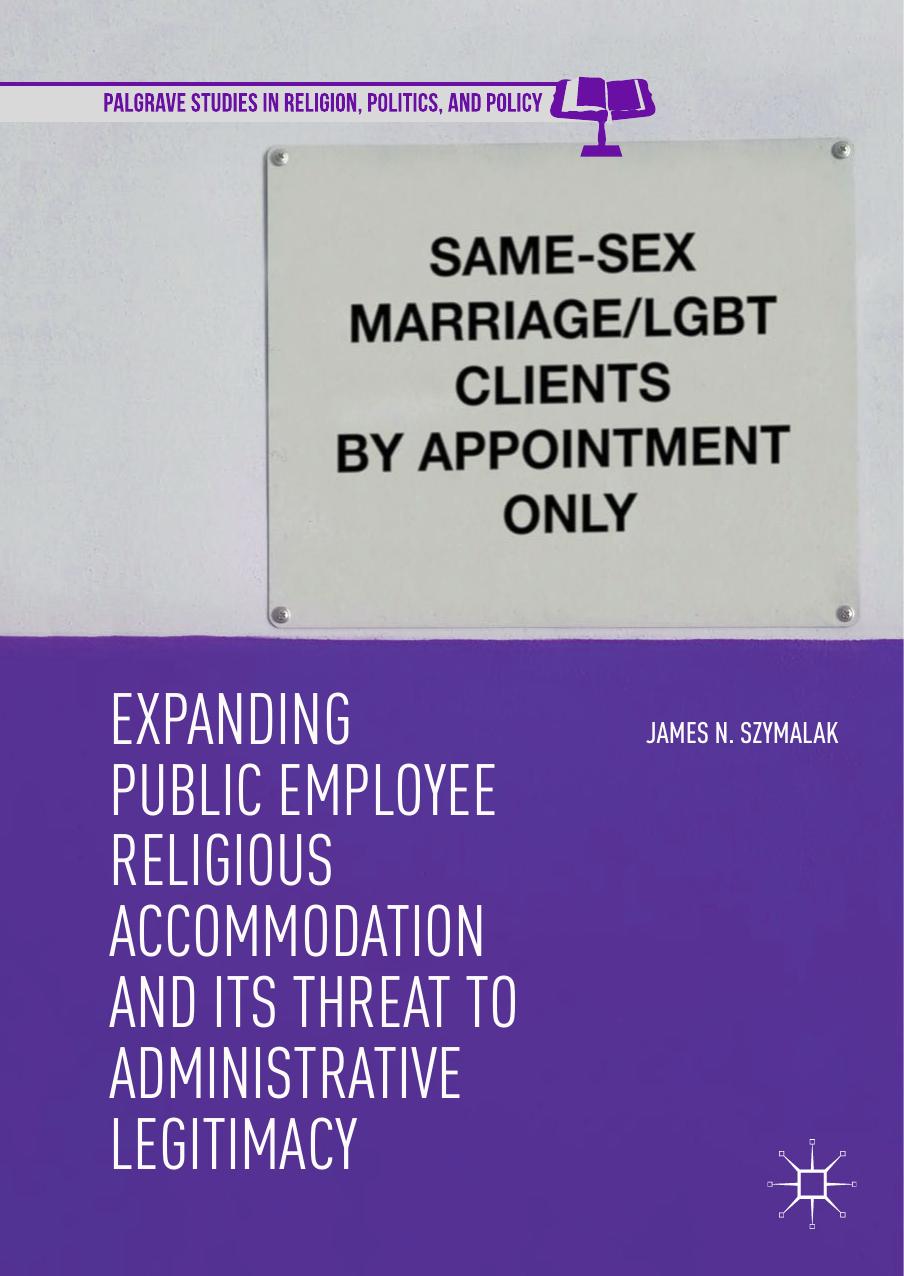Expanding Public Employee Religious Accommodation and Its Threat to Administrative Legitimacy by James N. Szymalak

Author:James N. Szymalak
Language: eng
Format: epub, pdf
ISBN: 9783319978314
Publisher: Springer International Publishing
Police Officer Patrols
The third test case arises in the public safety context. Suppose that a police officer assigned to foot patrol objects to his new assignment because it includes a row of nightclubs and bars known to be frequented by the cityâs LGBTQ population. In fact, the assignment results from an effort to increase the police presence as a result of several transgender patrons being targeted and attacked while attempting to walk home after exiting the clubs. The officer does not question the need for the patrol; instead, he asserts that his religious beliefs prevent him from facilitating the âgay lifestyleâ and that transgenderism is an affront to God. He requests a patrol route that avoids his religious conflict. Though the department would be free to permissibly accommodate the officer with a route change, current case law does not indicate that such an accommodation is mandatory. In fact, in the public safety context, there is support for the position that any accommodation is per se an undue hardship, and cannot be mandated.
The Seventh Circuitâs decision in Rodriguez v. Chicago 29 was the first instance in which the theory of a public safety exemption to religious accommodation obligations surfaces. The Court was asked to review the cityâs offer to reassign Officer Rodriguez to another district to resolve his religiously motivated refusal to guard an abortion clinic. Rodriguez argued for accommodation within his existing district; however, the court noted that the city is only obligated to remove the conflict, which a reassignment would accomplish.30 Since a valid accommodation was offered, the court refused to address whether granting Rodriguezâs proposed accommodations would have posed an undue hardship upon the police department. Judge Posner, however, believed that such an analysis would be beneficial, and his concurrence planted the jurisprudential seed for a lowered accommodation obligation.
Posner asserted that, when dealing with fire, police, and military organizations, the determination of whether the proposed recusal constitutes an improper hardship should not be determined by the level of inconvenience. Rather, according to Posner, the burden results from âthe loss of public confidence in governmental protective services if the public knows that its protectors are at liberty to pick and choose whom to protect.â31 As he explains:The public knows that its protectors have a private agenda; everyone does. But it would like to think that they leave that agenda at home when they are on dutyâthat Jewish policemen protect neo-Nazi demonstrators, that Roman Catholic policemen protect abortion clinics, that Black Muslim policemen protect Christians and Jews, that fundamentalist Christian policemen protect noisy atheists and white-hating Rastafarians, that Mormon policemen protect Scientologists, and that Greek-Orthodox policemen of Serbian ethnicity protect Roman Catholic Croats. We judges certainly want to think that U.S. Marshals protect us from assaults and threats without regard to whether, for example, we vote for or against the pro-life position in abortion cases.32
Download
Expanding Public Employee Religious Accommodation and Its Threat to Administrative Legitimacy by James N. Szymalak.pdf
This site does not store any files on its server. We only index and link to content provided by other sites. Please contact the content providers to delete copyright contents if any and email us, we'll remove relevant links or contents immediately.
| Africa | Americas |
| Arctic & Antarctica | Asia |
| Australia & Oceania | Europe |
| Middle East | Russia |
| United States | World |
| Ancient Civilizations | Military |
| Historical Study & Educational Resources |
The Dawn of Everything by David Graeber & David Wengrow(1693)
The Bomber Mafia by Malcolm Gladwell(1620)
Facing the Mountain by Daniel James Brown(1546)
Submerged Prehistory by Benjamin Jonathan; & Clive Bonsall & Catriona Pickard & Anders Fischer(1452)
Wandering in Strange Lands by Morgan Jerkins(1419)
Tip Top by Bill James(1409)
Driving While Brown: Sheriff Joe Arpaio Versus the Latino Resistance by Terry Greene Sterling & Jude Joffe-Block(1370)
Red Roulette : An Insider's Story of Wealth, Power, Corruption, and Vengeance in Today's China (9781982156176) by Shum Desmond(1350)
Evil Geniuses: The Unmaking of America: A Recent History by Kurt Andersen(1346)
The Way of Fire and Ice: The Living Tradition of Norse Paganism by Ryan Smith(1329)
American Kompromat by Craig Unger(1307)
It Was All a Lie by Stuart Stevens;(1296)
F*cking History by The Captain(1289)
American Dreams by Unknown(1277)
Treasure Islands: Tax Havens and the Men who Stole the World by Nicholas Shaxson(1267)
Evil Geniuses by Kurt Andersen(1249)
White House Inc. by Dan Alexander(1207)
The First Conspiracy by Brad Meltzer & Josh Mensch(1167)
The Fifteen Biggest Lies about the Economy: And Everything Else the Right Doesn't Want You to Know about Taxes, Jobs, and Corporate America by Joshua Holland(1115)
